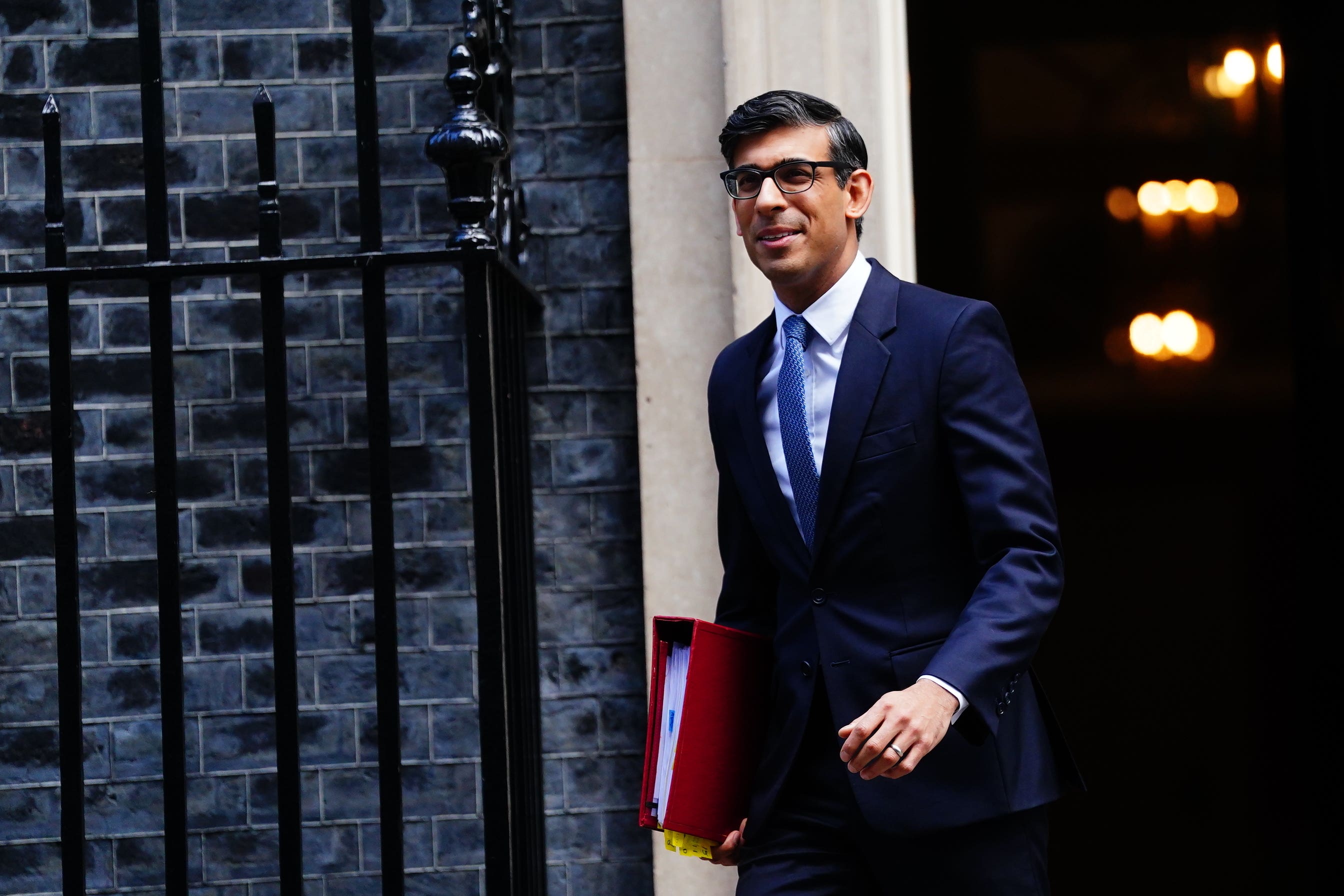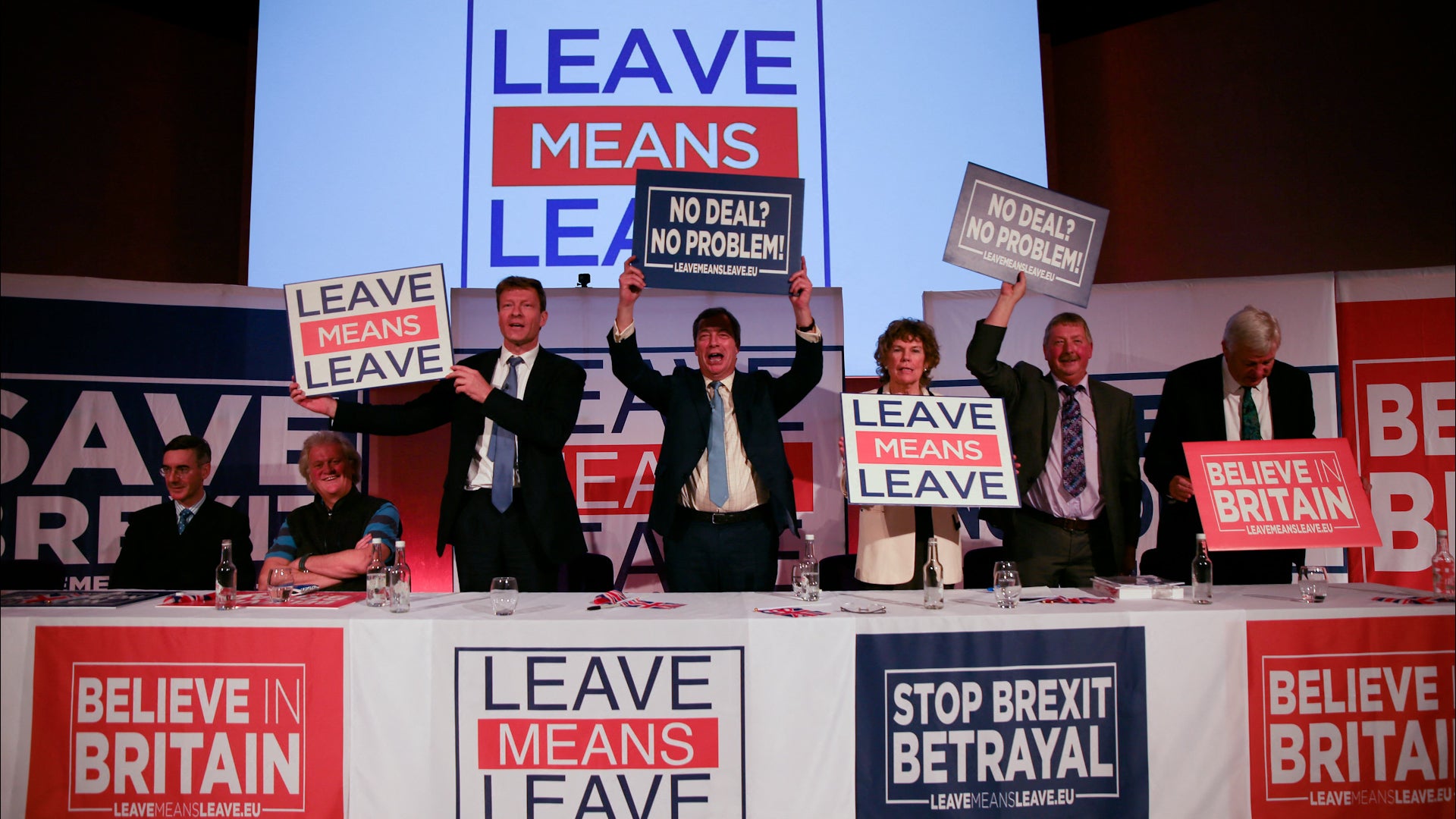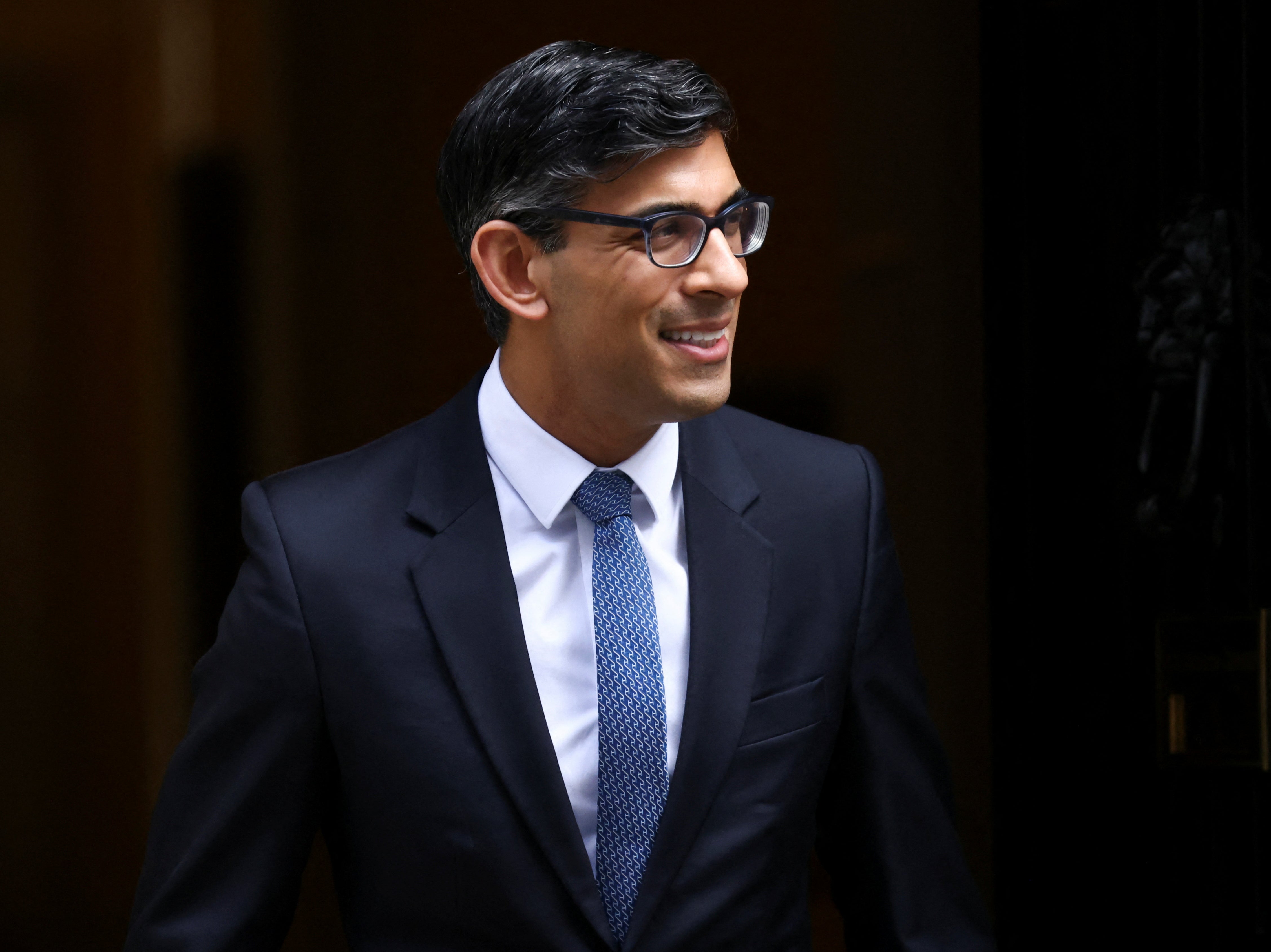How Rishi Sunak made his money
Prime minister and his wife Akshata Murty are worth a reported £730m
Your support helps us to tell the story
From reproductive rights to climate change to Big Tech, The Independent is on the ground when the story is developing. Whether it's investigating the financials of Elon Musk's pro-Trump PAC or producing our latest documentary, 'The A Word', which shines a light on the American women fighting for reproductive rights, we know how important it is to parse out the facts from the messaging.
At such a critical moment in US history, we need reporters on the ground. Your donation allows us to keep sending journalists to speak to both sides of the story.
The Independent is trusted by Americans across the entire political spectrum. And unlike many other quality news outlets, we choose not to lock Americans out of our reporting and analysis with paywalls. We believe quality journalism should be available to everyone, paid for by those who can afford it.
Your support makes all the difference.Rishi Sunak’s vast fortune has made him one of the richest politicians ever to enter Downing Street, in a premiership so far defined largely by an inflationary crisis hammering household incomes and savings.
The prime minister has repeatedly sought to brush off questions about his personal wealth, but according to the Sunday Times Rich List, Mr Sunak and his wife Akshata Murty – the daughter of an Indian tech billionaire – are worth £730m.

Long-awaited tax documents covering the past four years, and summarising Mr Sunak’s UK taxable income, capital gains and tax paid as reported to HMRC, showed in March that the PM has raked in more than £4.7m over the past three years.
Mr Sunak made more than £1.9m last year alone, including £1.6m in capital gains and more than £300,000 in earnings and investment income, according to the returns prepared by accountancy service Evelyn Partners.
As chancellor Jeremy Hunt unveils his autumn statement, The Independent takes a look at how Mr Sunak amassed his wealth, and the government roles which marked his path to No 10.
The MP for Richmond in the Yorkshire Dales previously served as chancellor under Mr Johnson, meaning he has experience at the top levels of government.
He oversaw the government’s furlough scheme during the Covid-19 pandemic and drew up plans for the cost of living payments being given to people to help them cover sky-high energy, fuel and food prices.

Mr Sunak was first elected to parliament just eight years ago in 2015 and his rise to the top has been swift.
He was promoted to the role of parliamentary undersecretary at the now-defunct Ministry of Housing, Communities and Local Government by Mr Johnson in 2019.
Just a year later, he got another promotion to chief secretary of the Treasury and was then made chancellor by Mr Johnson in 2020.
Prior to entering parliament, Mr Sunak worked as an investment banker and it was his experience in the industry that qualified him for the role of overseeing the nation’s finances, in Mr Johnson’s opinion.

Ms Murthy, whom Mr Sunak married in 2009, is the daughter of NR Narayana Murthy, founder of the Indian multinational IT services company Infosys, who is worth an estimated £3.8bn. She is reported to have a £690m stake in the family firm.
While Mr Sunak and his wife have a combined worth of more than £700m, the PM made his own fortune while working in the City of London.
After studying politics, philosophy and economics at Oxford University, like so many politicians before him, Mr Sunak went on to work as an analyst for Goldman Sachs before joining a series of hedge funds.
In the speeches he has given since becoming Tory leader, Mr Sunak vowed to unify his divided party and warned of the “profound economic challenge” ahead.
He also paid tribute to his humiliated predecessor Ms Truss, telling the nation: “I would like to pay tribute to Liz Truss for her dedicated public service to the country.
”She has led with dignity and grace through a time of great change and under exceptionally difficult circumstances both at home and abroad.

”I am humbled and honoured to have the support of my parliamentary colleagues and to be elected as leader of the Conservative and Unionist Party.
”It is the greatest privilege of my life to be able to serve the party I live and to give back to the country I owe so much to.”
One of the first real tests of his leadership came in January 2023 when it emerged that Conservative Party chair Nadim Zahawi had been forced to settle a tax dispute with HMRC and received a costly fine during his own tenure.

That placed huge pressure on Mr Zahawi to resign, which he refused to do, prompting Mr Sunak to order an investigation, face accusations of being “weak” from Labour leader Sir Keir Starmer and inquiries from the press about whether he too had ever been forced to pay a tax fine.
After initially refusing to answer, saying he considered his personal tax affairs “confidential”, No 10 finally confirmed on Mr Sunak’s behalf that he had never been fined by HMRC, with chancellor Jeremy Hunt producing the same answer.
He has, however, twice received fixed-penalty notices from the police: once for breaking pandemic laws by attending a birthday party for Mr Johnson in No 10 and once for failing to wear a seatbelt in a moving car during a visit to Lancashire.

Join our commenting forum
Join thought-provoking conversations, follow other Independent readers and see their replies
Comments